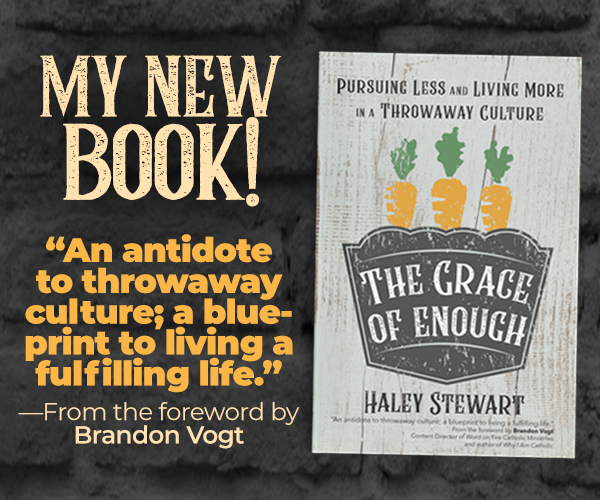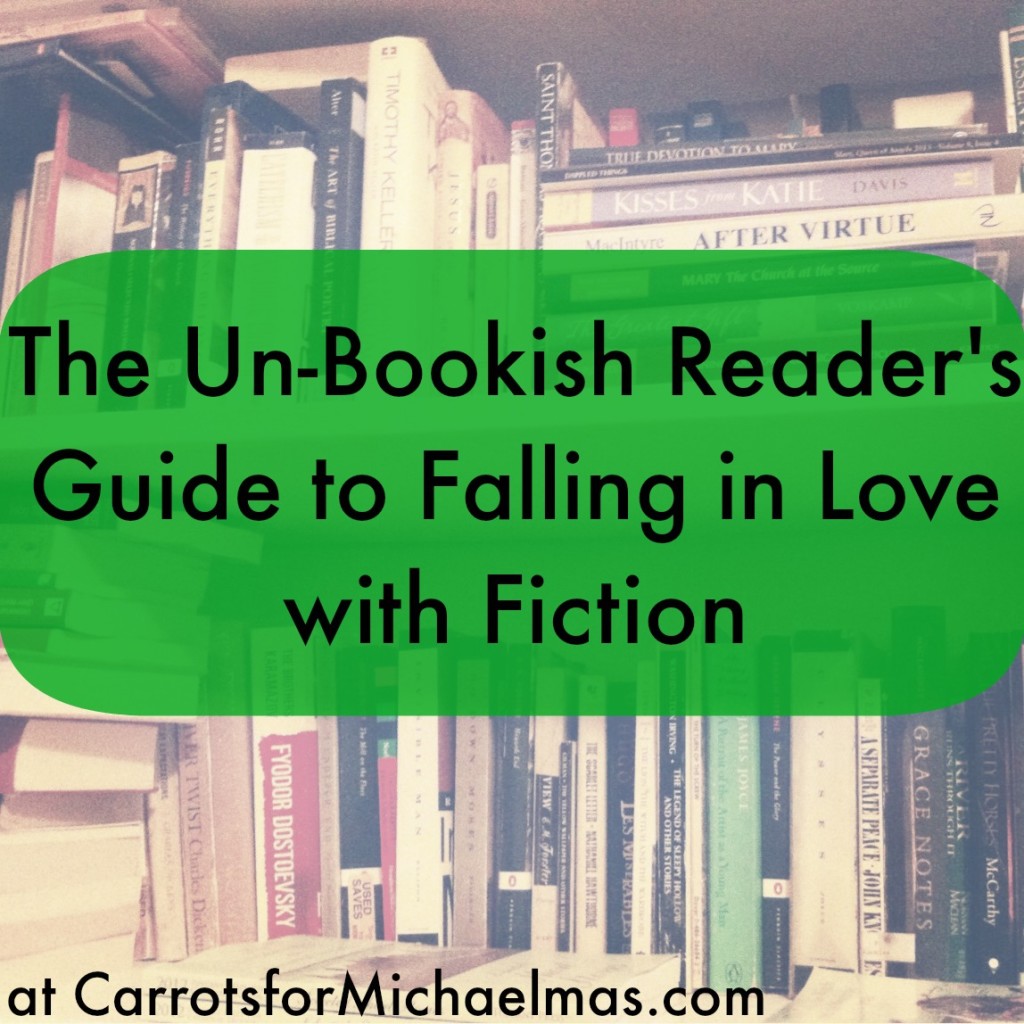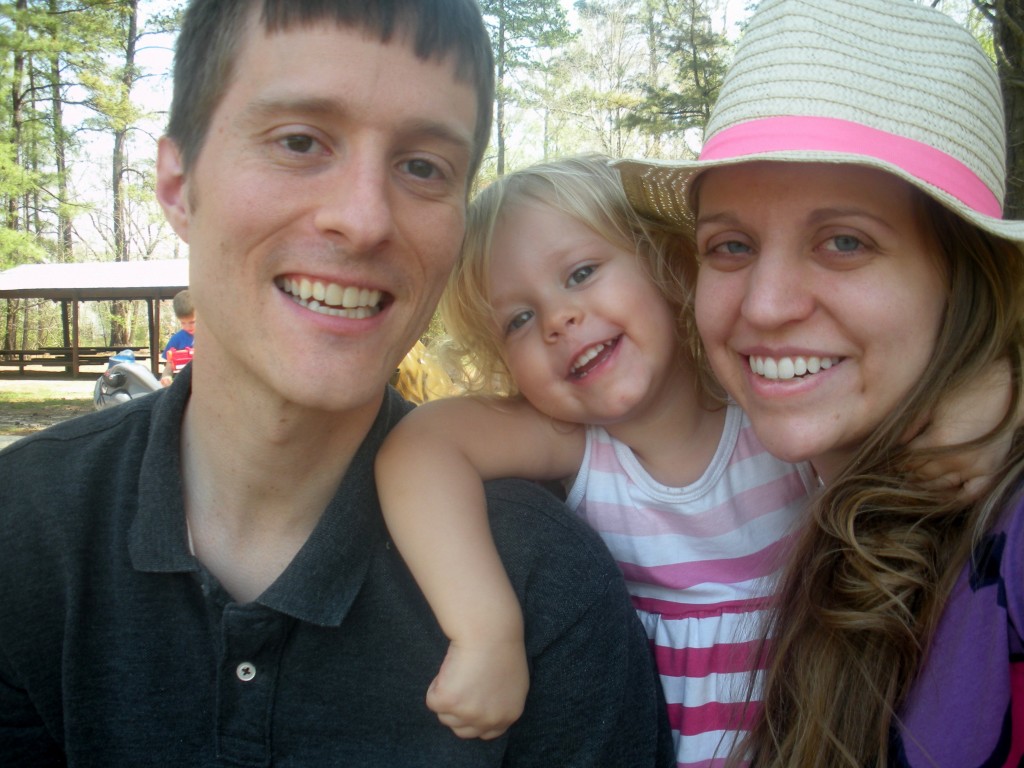Welcome to Carrots! I'm so glad you're here. This is where I share thoughts on liturgical living, faith, parenting, culture, and an extra dose of Jane Austen. You can sign up for my email newsletter here to stay in touch, or look me up on Instagram!
Guest post by Mandi Richards
Imagine the quintessential “bookish woman.” In your image, is she sitting next to the fire or in a comfy armchair with a cup of tea in hand? Is she reading Austen? Shakespeare? Fitzgerald?
I am not that woman. I’m ambivalent toward tea at best. I love to read, but I’m much more likely to lose myself in war history than a classic. Not only do I struggle to enjoy literature, but I regard myself as a fairly lousy fiction reader. I struggle to find underlying themes or analyze literary devices.
We’re often told, “Follow your passions,” and “pursue your strengths.” But what about the things that we aren’t particularly passionate or skilled? Is it worth the effort to find ways to enjoy and pursue endeavors to which we are not innately drawn? While I don’t get excited by exercising or eating healthy, I actively look for ways to make these them more enjoyable because I see their value. I’ve also done the same about exercising and feeding my mind through literature. Literature is not something that is a natural passion of mine but because I see the value of incorporating literature into my life, I’ve found ways to enjoy it and to become a better literature reader.
Why is literature valuable?
- In contrast to the stereotype that bookworms are socially awkward, reading literature improves social skills by increasing empathy, social perception, emotional intelligence, even “mind-reading”.
- An understanding of the classics is necessary for cultural literacy. Many classic works are referenced in articles and pop culture (especially music) with the assumption that the reader understands the origin. You can’t even listen to rap without references to famous authors and works.
- Improves writing skills and increases vocabulary.
How I’ve cultivated enjoyment in literature:
- Join book clubs. I recently realized that of all the books I’ve read as part of a class (elementary through college) or book club, there was only one I did not like (Frankenstein). Yet I can only think of about half a dozen classics that I enjoyed reading on my own. Heart of Darkness is perhaps my favorite, though I am perfectly certain that I would have abandoned it fairly early on in abhorrence if I had not read it in school.
I lack the ability to see below the surface to find deeper meaning and connections in literature unless I have the ability to hear others’ ideas and incorporate my own observations with them. Reading within a book group also provides the motivation to complete a book when I might abandon it on my own. To find a book club, check out your local library, search meetup.com, or search the web for an online book club. I’m currently reading all of Jane Austen’s books as part of an online book club and it’s been just as fruitful for me as any in-person book club I’ve attended.
- When reading on your own, allow yourself to stop reading if you’re not enjoying it, even if it’s only 10 pages in. If I force myself to continue, I notice that my frustration at reading one book I don’t like has a lasting effect and I’m much more likely to give up fiction altogether for a long period of time.
- Outside of book groups, stick to your favorite genres. I love dystopian fiction (1984), sci-fi (Ender’s Game), and fantasy (The Lord of the Rings). Within those genres, I also know I like a lot of young adult fiction. What’s even more important than allowing myself to read what I want is not allowing myself to feel bad about it. I’m not going to argue that The Hunger Games is as great of literature as a Shakespeare play, but if I’ll enjoy The Hunger Games and struggle through The Taming of the Shrew, the former one has more personal value to me. I’m ok with saving Shakespeare for a book club down the road knowing that I’ll enjoy it infinitely more then.
- Read several books at a time. Not everyone thrives by reading several books at a time, but I do. I’m much more likely to stick with work of fiction if I can take frequent breaks to pick up the works of non-fiction to which I’m naturally drawn. I also find myself more eager to get back into my fiction pick as a little bit of light fun after reading some particularly dense or intense passages of non-fiction.
- Set personal reading goals. Last year for my birthday, I wrote a list of 30 things I’d like to do before my 30th birthday. One goal was to read 40 books but I also specified that I wanted to read at least 20 fiction books. That averages out to five fiction books a year, which may seem like nothing to some, but was an attainable though ambitious goal for me. I’ve noticed that when I finish a book, I’m much more likely to reach for fiction than I use to because I’ve got that goal in mind. Make sure your personal goals are exactly that – personal – and don’t worry about the bookish ladies out that that shoot for 5 classics a month. Your goals are there to improve yourself not make you into someone else.
- Make connections outside the book. Because I’m a history buff, I read with an eye on what the books says about the period when the book was written/set which helps me to find enjoyment in the book. I’ll sometimes read a non-fiction book somehow related to the novel or time period to help keep up the outside connections. If you don’t like history, you can read books with an eye on other themes. For example, the Austen book club I previously mentioned is reading the books from the perspective of motherhood – analyzing the characters based on how they parents/how they were parented and applying it to how we parent.
Mandi is wife to David, mother of Lucia, and blogger. She loves her Catholic faith, a cheap bottle of red wine, a good book, and jalapeños on her popcorn.



You didn’t like Frankenstein? Sad! (I jest, but I do love that tale.) As an English major, most my major classes are essentially a book club. We read, we discuss, and then we write (and sometimes we test). I’m graduating next week (if my two month old lets me finish my capstone) and I’m hoping to start reading for pleasure again. I actually picked up a biography on St. Therese of Lisieux, due to a recommendation from Catholic All Year.
And..I’m rambling.
What I’m really trying to say is thanks for writing this! It’s so fun seeing how non-bookish people become bookish. And frankly, your tips are great for all of us!
Great tips! I have a master’s in English, and it makes me so sad when other people say they don’t like reading. How can you not like reading? Even if you’re not into fiction there are SO MANY amazing non-fiction books out there, too. Reading is one of those things you can be really selfish and selective about, and my advice to anyone who doesn’t know what they like is to try anything. Like you said, even 10 pages of something you wouldn’t think you would like! You’ll be surprised at what gets your attention.
This reminds me of my 11th grade English class. We had a student (OK, a male football player who had been held back a grade, now you get the picture) who proudly had never finished, let alone enjoyed, any books. Our teacher assigned this delightful young adult historical fiction novel about the Hatfields and the McCoys called The Coffin Quilt (highly recommended if you have middle or high school readers!) All of a sudden this football player was hiding The Coffin Quilt behind other textbooks in classes because he couldn’t put it down.
I have my degree in English because I love to read so much. But I have a harder time picking up a non-fiction book than a fiction one. And poetry is the worst for me. The best classes I had were the ones where discussion questions were handed out when the reading was assigned and then we had an open, loosely plotted, discussion.
I’m currently in a book club, where we’ve read everything from fiction to non-fiction, including classics and sci-fi. It’s so satisfying to talk about what you’ve read and the thoughts that you had. I keep a journal to jot those down in so I don’t forget in time for our meetings. I’m glad you’ve found a way to get enjoyment out of reading.